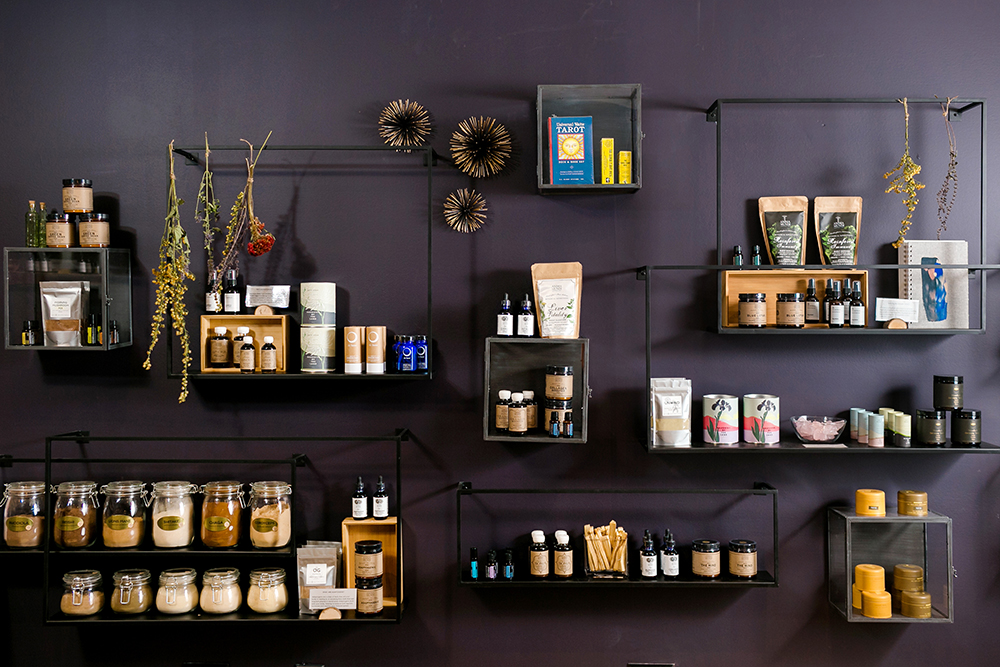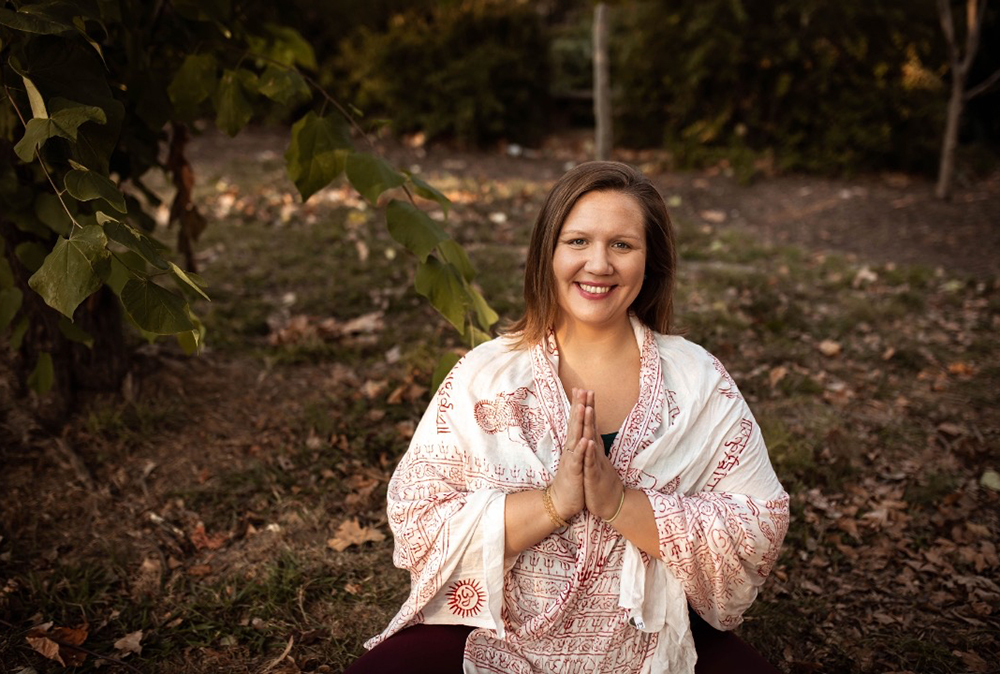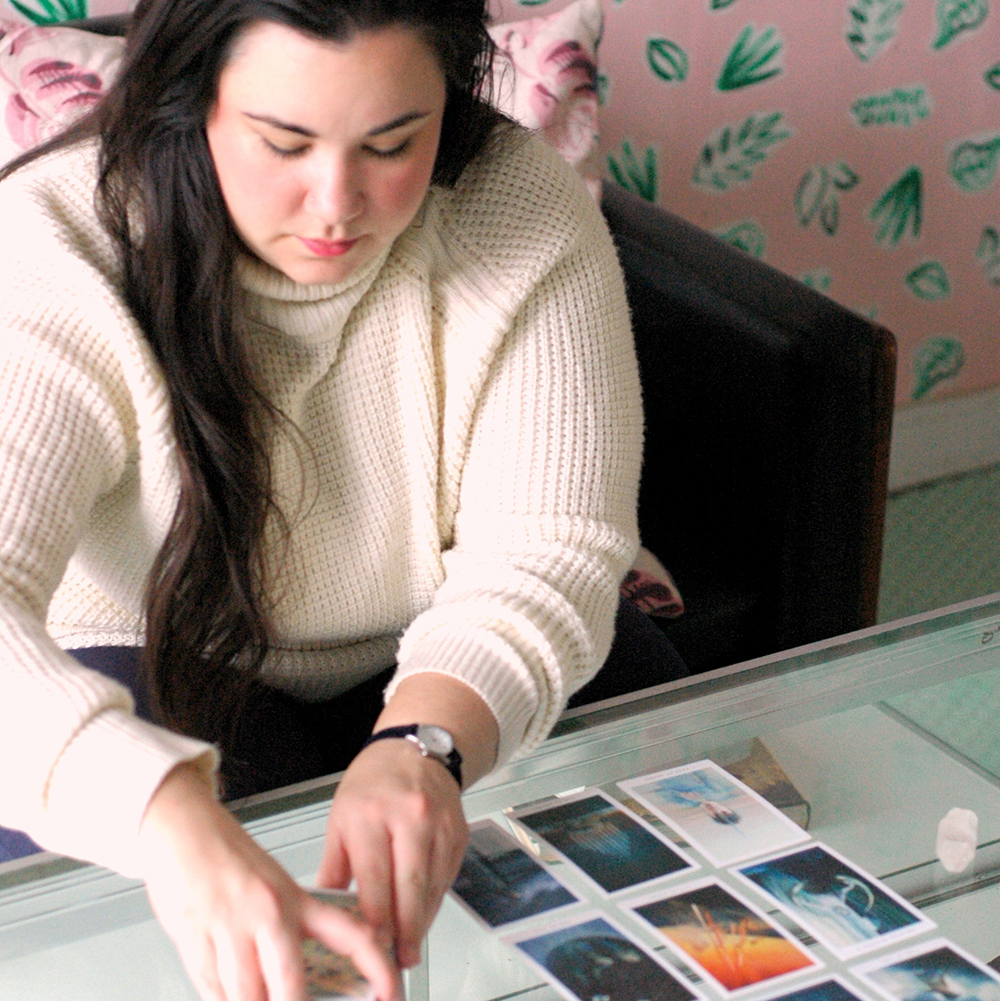Life
 Sense. Photo by Alicia Bruce.
Sense. Photo by Alicia Bruce.
A New Era of Self-Care: Navigating Physical, Mental + Spiritual Health in the District
March 8, 2020 @ 4:55pm
Wellness and self-care are concepts that most people want to incorporate into their lives with the best of intentions. But like most things in our world, where there is money to be made, there’s exploitation to be had. Instagram models hawk dangerous products like “flat tummy teas” and Gwyneth Paltrow sells $70 vagina-scented candles – all in the name of wellness. Navigating the wellness industry (yes, it is very much an industry) safely has started to require the same skills as recognizing fake news. But this doesn’t mean that taking care of yourself needs to be scary. There are countless places in D.C. that provide ways for you to take care of yourself – physically, mentally and spiritually. They all provide an invaluable sense of community with locals looking for the same thing you are, and some of them don’t even want your money. So close out of Instagram and check out some ways to take care of yourself in D.C.
Body Positive Boot Camp
Working out in a group setting can be intimidating. The trainer is yelling, the music is blasting and everyone’s leggings are so much more expensive than yours. But Bianca Russo, owner and trainer of Body Positive Boot Camp, provides an opportunity to get the blood pumping for people with a wide variety of abilities, fitness levels and sizes.
“One of the things I like to highlight is the amount [or type of] modifications that I do to exercises so that people who have varying abilities are able to execute the movements in a way that’s more comfortable for them,” Russo says. “They can walk out feeling successful and celebrated.”
Russo encourages clients to ask each other’s pronouns and to work at their own pace. There’s no mention of weight loss or dieting, either.
Through Body Positive Boot Camp, you can get personal training, join group classes or partake in the new Chubby Runner’s Club.
“That’s just the overarching theme: getting more people more active because it’s good for you.”
Take group or individual training classes with Russo at Fit360DC, located at 3058 Mount Pleasant St. NW, DC. Visit www.bodypositivebootcamp.com for more about virtual sessions or to purchase Russo’s guided workouts.

Alle Kamela. Photo by Ashley Neuman.
LGBTQIA+ Inclusive Yoga
Yoga has a multitude of health benefits, and there are so many options. You can physically challenge yourself, work on your flexibility, or find classes with a more mental and meditative focus. But the truth is a lot of classes can leave people feeling left out. Alle Kamela leads non-binary, trans and queer-inclusive yoga classes that are weight neutral and pay-what-you-can.
Kamela notes, “I think having a space specifically designated for queer, trans and nonbinary people or gender nonconforming folks to go and be together – and have it be a safe space – is really fundamental.”
Their classes allow each yogi to share their preferred pronouns in an accepting space, and each class is body positive – meaning no talk about diets. Kamela is certified in Dharma yoga and describes their classes as being on the gentler side. The focus is on taking time away from modern day’s endless obligations and looking inward.
“I like to joke in the queer classes that there was something inside of us we listened to that told us we were not straight, we were queer. We can find that voice, and it can lead and guide us to other revelations or understanding about ourselves.”
6:30 p.m. on Thursdays at Lamont Dharma House: 1719 Lamont St. NW, DC; follow on Instagram @nonbinaryogi

Emily of Woven Psyche. Photo courtesy of Emily.
Tarot Readings
Everyone who practices tarot has a different philosophy. Traditionally, the practice meant telling the future. But much like the recent popularity in horoscopes, tarot offers a way to understand and validate thoughts and feelings. For Emily of Woven Psyche, the intent is to provide clients with clarity and a plan to move forward.
“Tarot can be a really enlightening practice for helping people organize their thoughts and emotions, [to] recognize and validate whatever nagging feelings they might be experiencing but have been telling themselves they’re too silly to be feeling,” she says. “I think that empowers people to gain clarity and develop a plan of action they can move forward with.”
Through Woven Psyche, she gives clients options for self-care sessions, tarot readings, and even classes and workshops to learn how to read tarot cards. Sessions can include free writing, meditation, mindfulness and a variety of other practices depending on what the client seeks. Emily stressed that what she provides through tarot is not a mystical look into the future, but objectivity from a situation that can help make decisions.
“I don’t think there’s anything mystical about it. You can buy all these tarot decks on Amazon and they come from a publishing company or a printer. You’re basically using them as a tool to take whatever internalized hidden thoughts and emotions are going on inside of you and externalize [them]. It creates a sense of objectivity and distance.”
For a full list of tarot services provided by Emily, visit www.wovenpsyche.com.
Sense
Getting your hair done and bonding with your stylist can be a rejuvenating experience. Erin Derosa explores that connection with her Park View-based business Sense, a hair salon that also offers a variety of healing sessions and workshops for clients. In addition to haircuts and coloring, clients can get private sessions in breathwork, reiki, astrology and more.
“Hair services are deeply personal in the actual act of touching someone’s head and also in the conversation that often happens,” Derosa says. “It seemed very natural to combine both worlds when I opened my own place.”
In addition to private sessions at Sense, the salon hosts workshops on topics like body positivity, financial health and positive financial mindset, herbalism, sex-related topics, women’s circles, and more. Practitioners are urged to be open and mindful, especially when their practice comes from a historically oppressed community.
“Sense strives to be a place of authenticity, conversation and education. We are truly interested in this work and want to share because individual healing is important – it’s not just trendy.”
Sense: 3111 Georgia Ave. NW, DC; www.sensestudios.co
Counseling
When it comes to well-being, we would be remiss not to mention the importance of health care through licensed mental health professionals. Although this can be a costly option, OpenCounseling lists affordable options by geographical area – including the D.C. area. Its creator, Mark Pines, discusses the importance of practicing mental well-being as you would physical.
“People who are physically healthy still need to do many things to remain healthy, such as eating right and exercising,” Pines says. “In the mental world, seeing a counselor can be an important part of maintaining and growing your well-being.”
While seeking help from a counselor or therapist is less stigmatized than it used to be, the stigma still exists. We can’t erase generations of that dangerous and damaging mindset from existence in one article, but if money has been a barrier to seeking mental help, open counseling is an option.
To look for free or low-cost counseling in D.C., check out
www.opencounseling.com/district-of-columbia/washington.
Libraries
Your local public library is priceless. Everyone knows this, but how do libraries provide well-being opportunities? The answer: in countless ways. The most important, however, may be the sense of community the library offers – regardless of what you’re looking for from your local branch.
As DC Public Library (DCPL) Executive Director Richard Reyes-Gavilan notes, the act of reading itself has countless benefits. But branches often host book clubs for those who want to discuss what they’re reading, and community story times, which can be a great way for parents to connect. And DCPL branches host regular classes to get people moving, too – including Zumba and yoga.
“Ultimately, the benefit we’re talking about is, [the library is] that sort of classic third space,” he says. “It’s not your home. It’s not your place of work. It encourages people to get out of their house, flex their legs, [and] participate in civic engagement, culture [and] debate. It’s a healthy lifestyle option for people to find that physical space outside of our home that allows people to connect to each other.”
For a full calendar of wellness programming at various locations, visit www.dclibrary.org.







